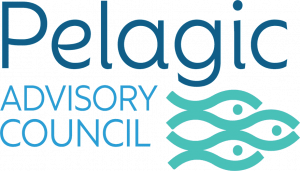| PelAC Letter of support for the IMBUS project | With this letter the Pelagic Advisory Council (PelAC) confirmed their support of the proposal being prepared for submission to EU-funding under the EMFAF programme on ‘Implementing More and Better Use of ICES Survey data’ (IMBUS) and expressed willingness to take part in the project’s stakeholder advisory board. | 2025 | Letter of Support |
| NWWAC/PelAC advice on renewable energy developments in the marine space | The NWWAC and PelAC wrote to the North Western Waters Member States Group that they as representative and legitimate EU fisheries stakeholder bodies which are legally recognised as organisations pursuing an aim of general European interest, strongly believe that they should be included in the consultation processes. | 2025 | Letter to NWW Member States Group |
| Joint-ACs advice on stakeholder engagement in STECF processes | In this letter the Long Distance Advisory Council (LDAC), Mediterranean AC (MEDAC), Outermost Regions AC (CCRUP), North Sea AC (NSAC), North Western Waters AC (NWWAC), Pelagic AC (PelAC) and South Western Waters AC (SWWAC) highlighted some considerations regarding stakeholder involvement in STECF processes as observers and suggest ways to enhance the valuable contributions ACs can make to these processes. | 2025 | Letter to COM Commission response |
| PelAC 2025 fishing opportunities recommendation for herring | The PelAC sent the 2025 fishing opportunities recommendation for herring in 6a North, herring in 6a South and 7bc and Irish Sea herring to the Commission. | 2025 | Letter to COM Response from COM |
| NWWAC/PelAC letter on Seafood/ORE Group | The NWWAC and PelAC sent a letter to the Irish Department of the Environment, Climate and Communications, to reiterated their request for inclusion in the relevant stakeholder discussion forums, and in particular the Seafood/ORE Group. | 2025 | Letter |
| PelAC statement for the meeting between ACs and the Commission – 3 December 2024 | The AC Chairs and Vice-Chairs were invited for a pre-council meeting on 3 December 2024 in Brussels. Please find the PelAC statement prepared for this meeting here. | 2024 | Statement |
| PelAC invitation to Commissioner for Fisheries and Oceans | The PelAC invited the new Commissioner for Fisheries and Oceans, Mr. Costas Kadis, to join the PelAC Executive Committee meeting on 3 April 2025. | 2024 | Letter to COM |
| Joint NWWAC/PelAC submission on the Ecological Sensitivity Analysis Celtic Sea | The NWWAC and PelAC shared their concerns in relation to the study ‘Ecological sensitivity analysis of the Celtic Sea to inform future designation of Marine Protected Areas (MPAs) Report’ with the Irish Minister of Housing, Local Government and Heritage. | 2024 | Letter to Irish Minister |
| Joint ACs Congratulatory letter on the parliamentary approval of the Commissioner for Fisheries and Oceans | The eleven Advisory Councils congratulated Commissioner-designate Kadis on his recent parliamentary approval as Commissioner for Fisheries and Oceans. | 2024 | Letter to COM Attachment: Brochure ACs Commission response |
| PelAC letter – Update of the Southern horse mackerel Long Term Management Plan | The PelAC believes that developing an update multiannual management strategy for the Southern horse mackerel must be prioritised and recommended that the Commission submit a request to ICES to have the updated PelAC LTMS undergo a Management Strategy Evaluation (MSE). | 2024 | Letter to COM |
